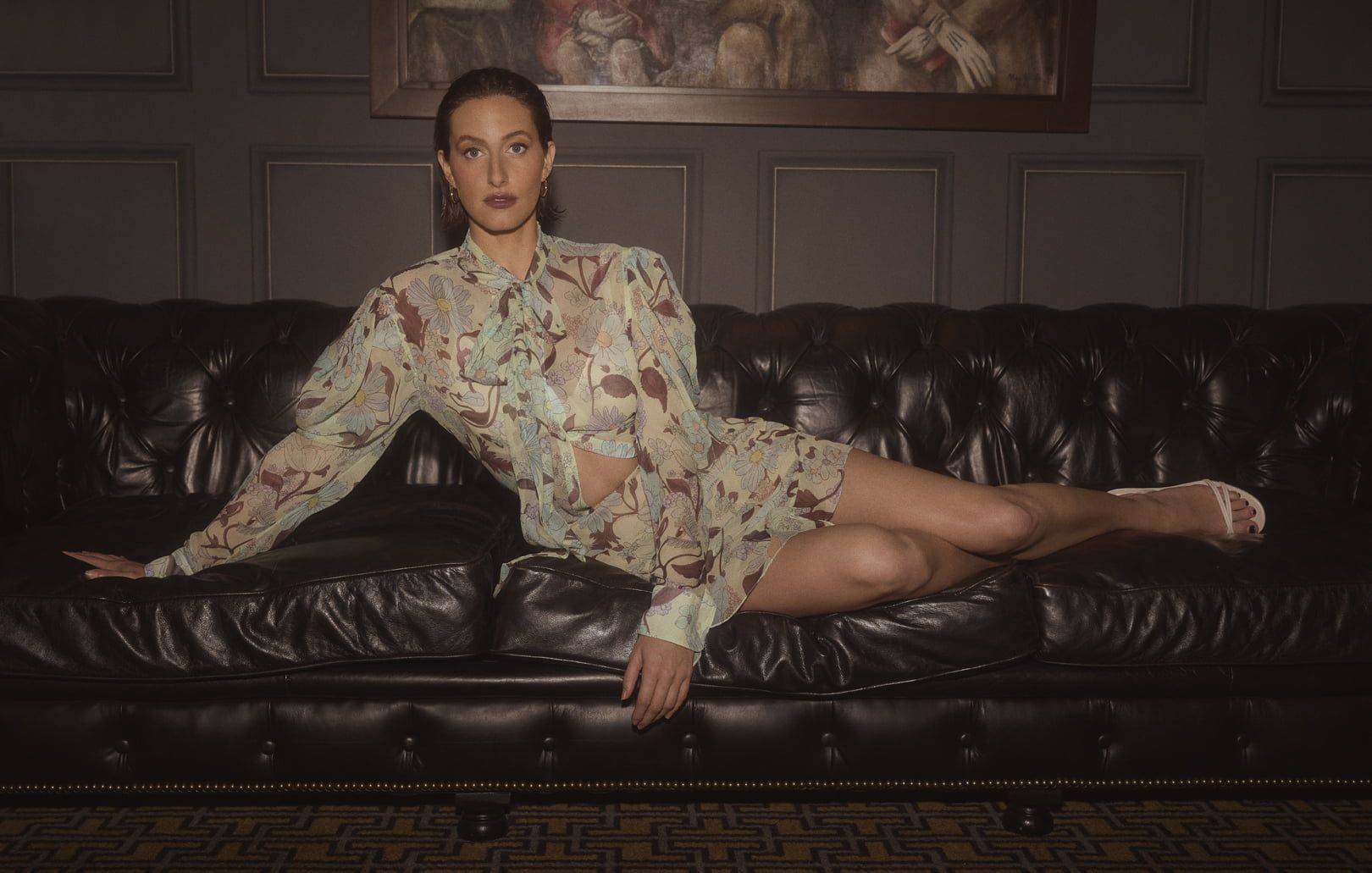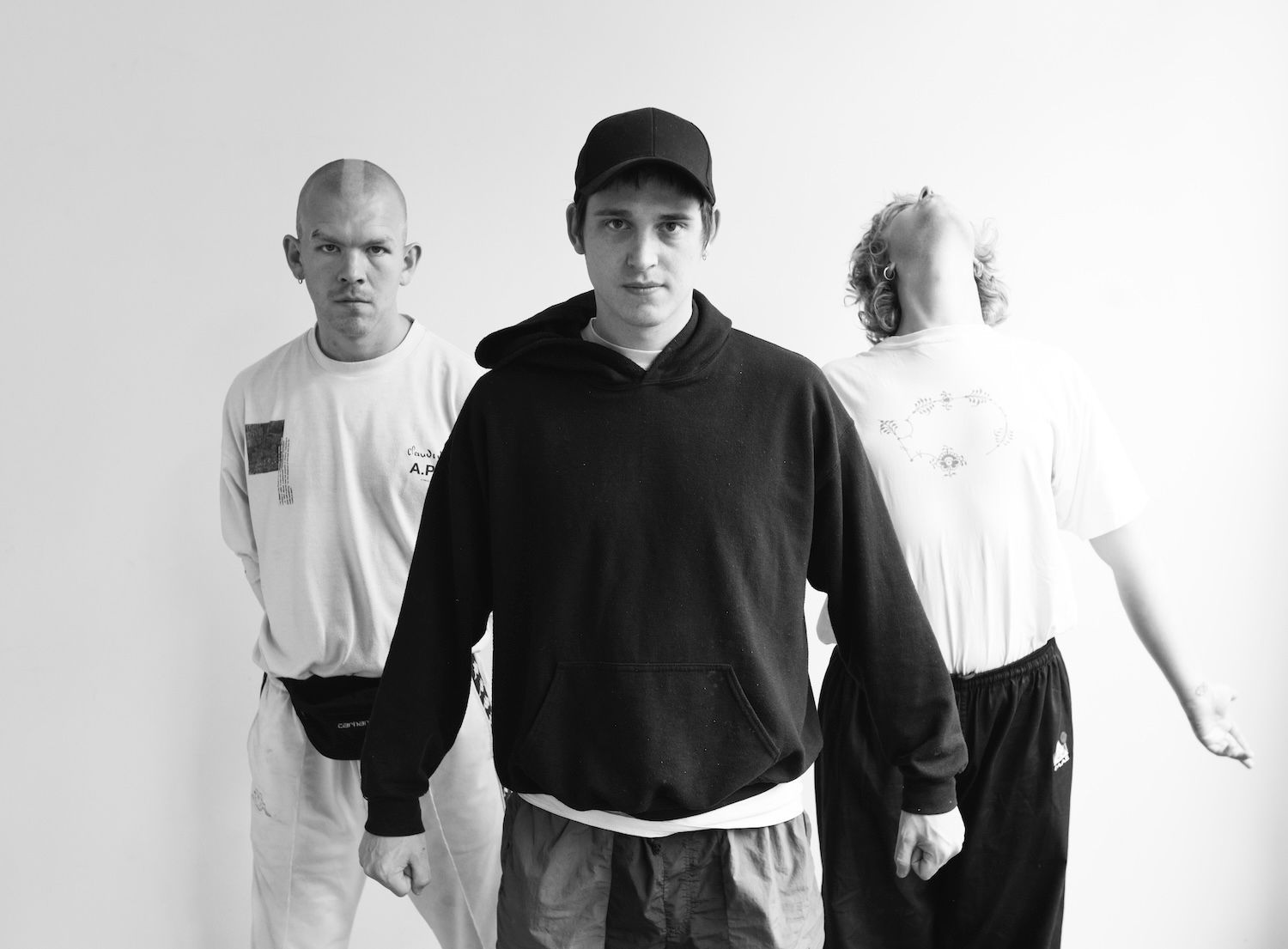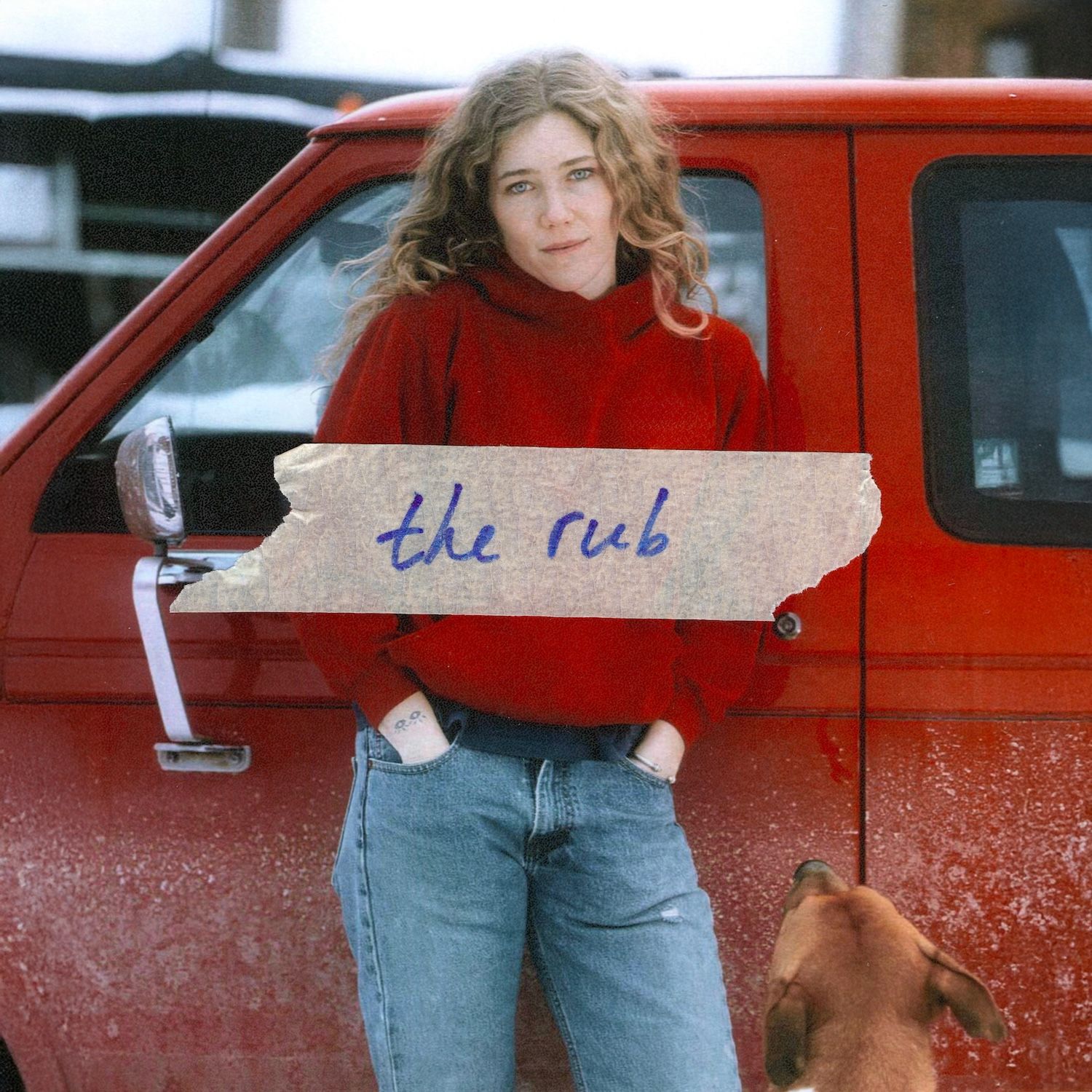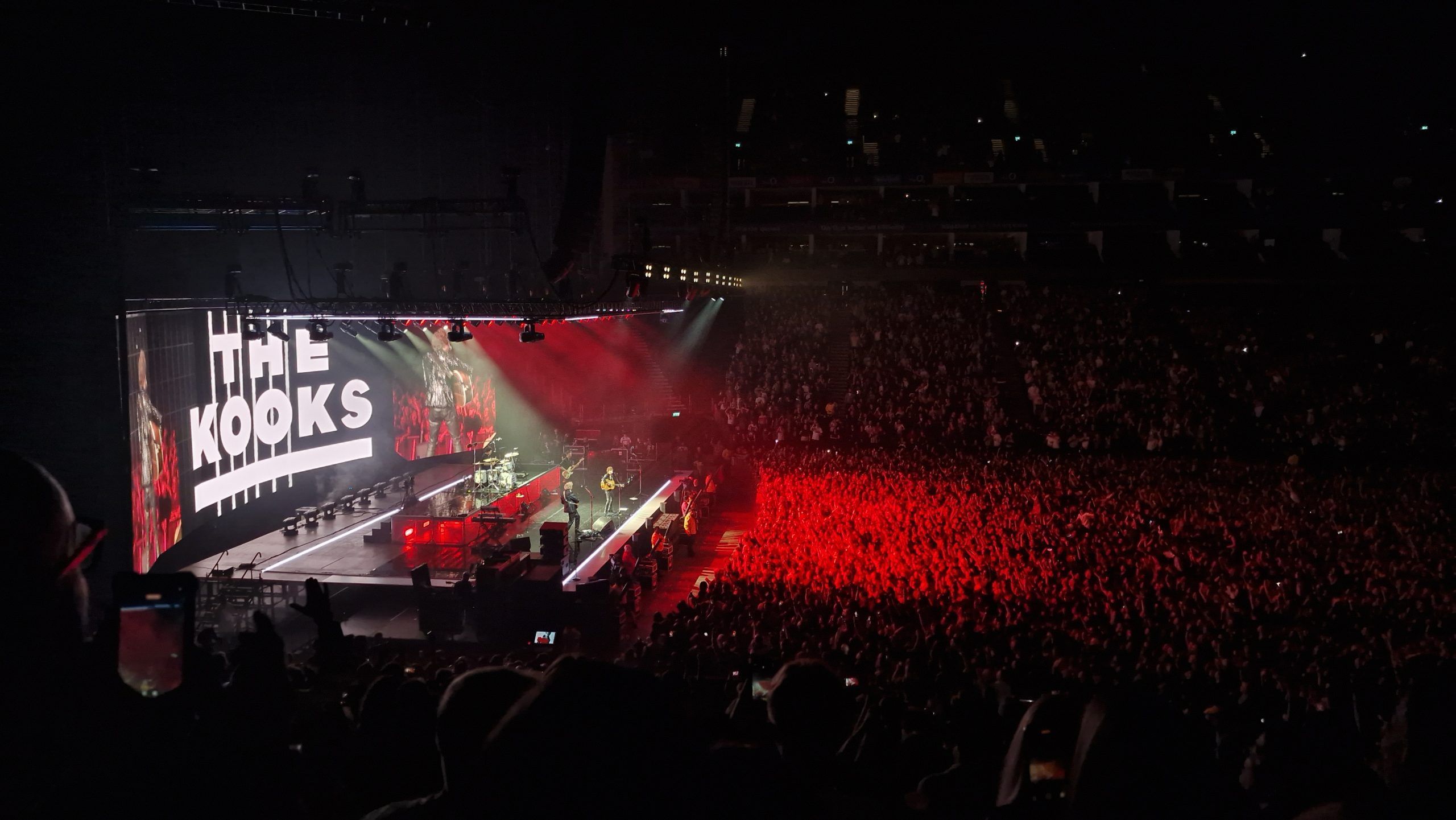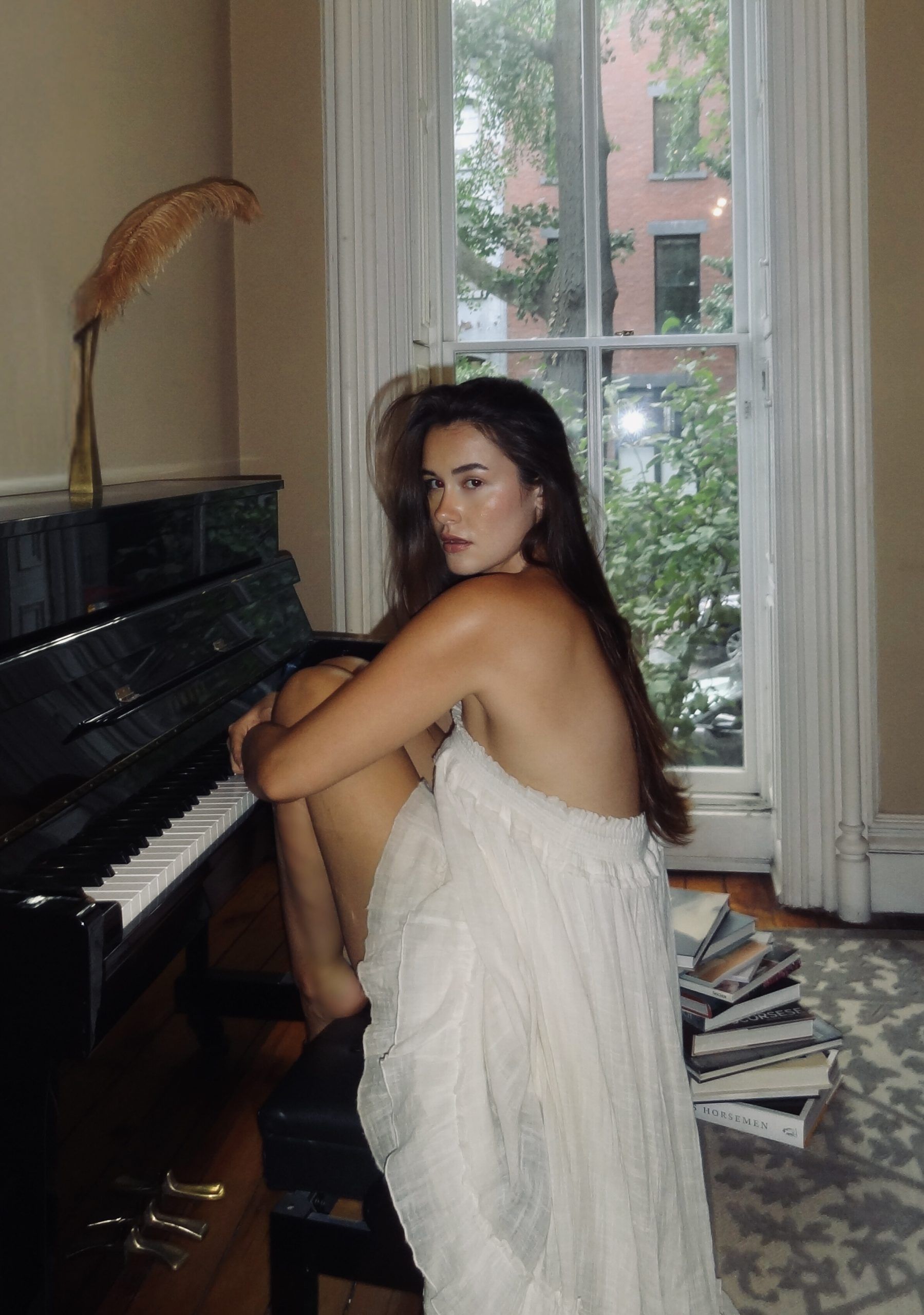Fresh off of a musical hiatus, Nora Mae is more ready than ever to show the world who she is.
She has spent years perfecting her cinematic sound: a unique blend of jazz, rock and pop fuses together to create a sonic space that sits perfectly between vintage and modern. Feeling very reminiscent of a Bond film soundtrack, Nora Mae pulls influence from a wide range of sources. Her first single Rendezvous, a sultry, slinky track about an intense love affair, was released in late 2022.
After taking some time to reconnect with herself and her artistry, Nora Mae is gearing up to release her debut project Mad Woman, a six-track EP that takes listeners through a reflective healing journey. From upbeat, self-assured tracks to vulnerable ballads, the Mad Woman EP captures a wide spectrum of emotions and showcases Nora Mae’s range as both a songwriter and singer. It’s a brilliant debut, and will cement Nora Mae as a rising star.
While creating her own path and legacy as an artist, Nora Mae also carries on the legacy of her grandmother, Eartha Kitt. A legendary musician and actress, Eartha Kitt has served as a source of inspiration for Nora Mae, both in her career and in her identity. Throughout her career, she’s found the balance between honouring her roots and creating a name for herself.
Ahead of the Mad Woman release, 1883 Magazine sits down with Nora Mae to chat about the project, her return from a hiatus, and what’s next for her career.
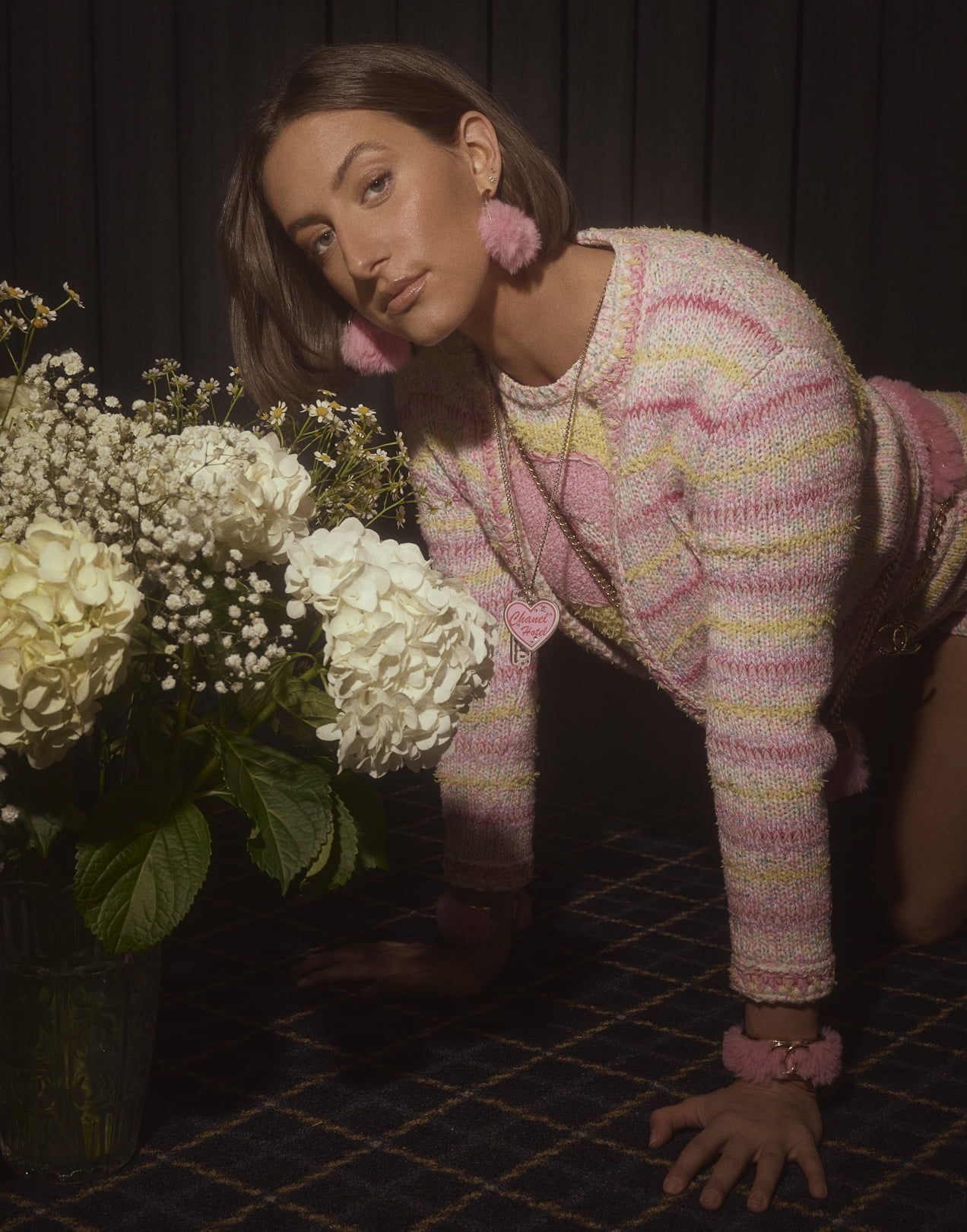
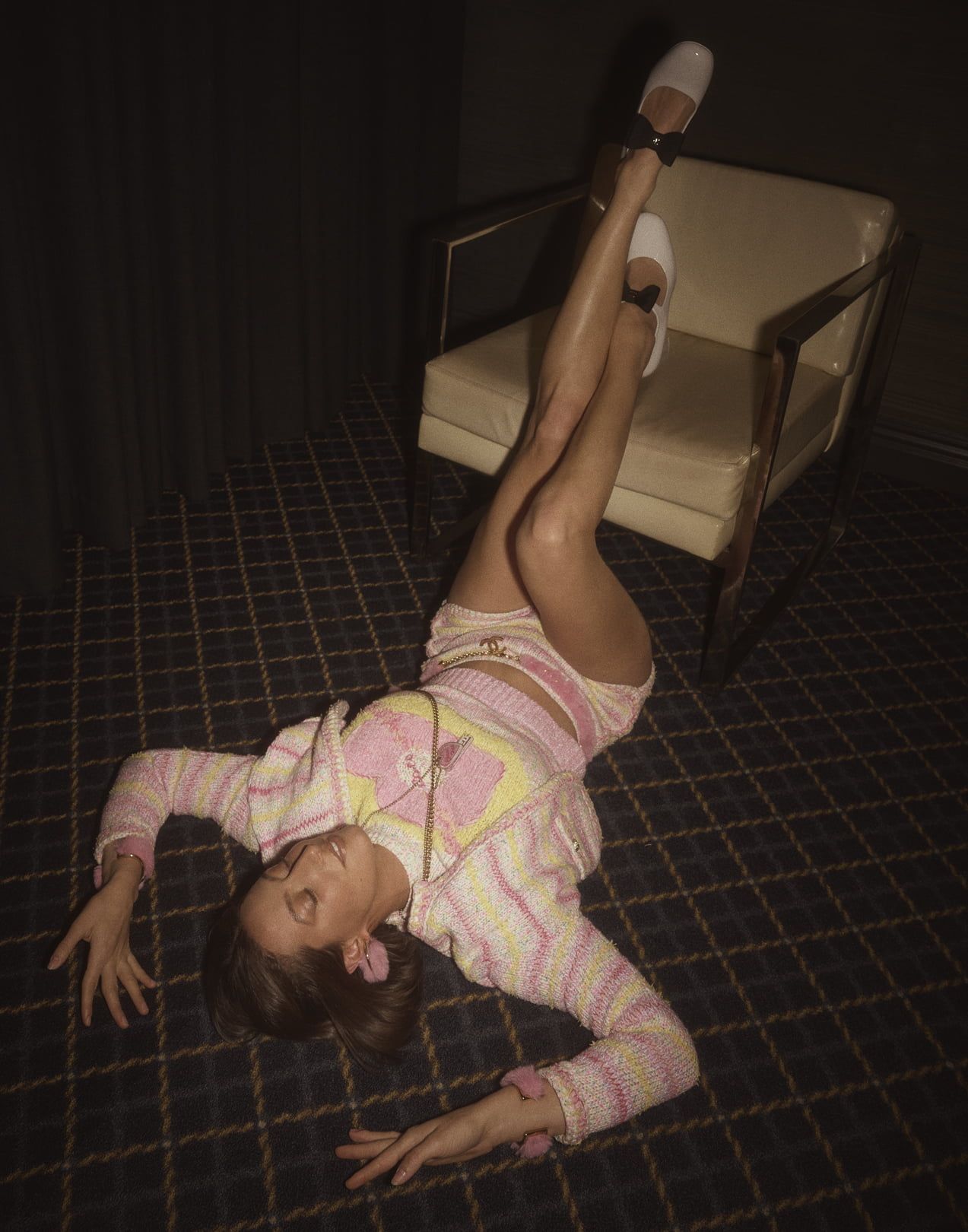
Thank you so much for taking time to chat with me today! I wanted to start off by asking you about how you originally became interested in music. Were you surrounded by music growing up?
When I was growing up, my grandmother was a performer. She was a singer and an actress, tons of performances and touring when I was a kid. I have a big blended family, but I was the only kid who was interested in it. I basically followed my grandmother and my mom everywhere they went. I was with her when she was on Broadway, on tour… and I just knew. My other siblings had activities they loved, and I just always wanted to go with Nana. I always loved music and acting, I did several musical theatre camps as a kid. I’ve always loved musical theatre, I think that’s a part of me that I want to tap back into at some point. Through the years, my focus became music: writing and performing my own music. It’s what I love to do the most. I started writing music when I was ten or eleven. The songs were so bad, but it was such a fun creative outlet. I would watch Hannah Montana, and I wanted to be her. I loved the idea of being a pop star.
I had my mom, who had seen it happen with my grandmother, so she knew that it was possible. Then I had my dad, who’s a lawyer. He’s very analytical and logical. It’s a great balance to have both of them. I made a deal with my parents that I would go to college, get a degree to fall back on, and see if any other paths in life would fulfill me. I tried, I graduated and then moved to Chicago for a year. I had a nine to five job. I didn’t even make it a year. I was still writing songs because that’s always been my therapy. I had a moment, though, that clicked.
I was working with a couple of friends who were making electronic music, they were aspiring DJs. They wanted to work on stuff that had lyrics and vocals, and not just pulling samples. We started writing songs together, and some of the songs got a bit of attention. That was enough to show me that I had to get back into music and be in that lane. I quit my job and never ran away from a place so fast. I moved back to New York, where my family was, and worked with a bunch of people there. As I was in those rooms, I just felt, ‘yeah, this is it.’ Everyone started migrating out to L.A., and I had to make that decision if music was something I really wanted to pursue. I did, and I moved out to L.A. in 2019.
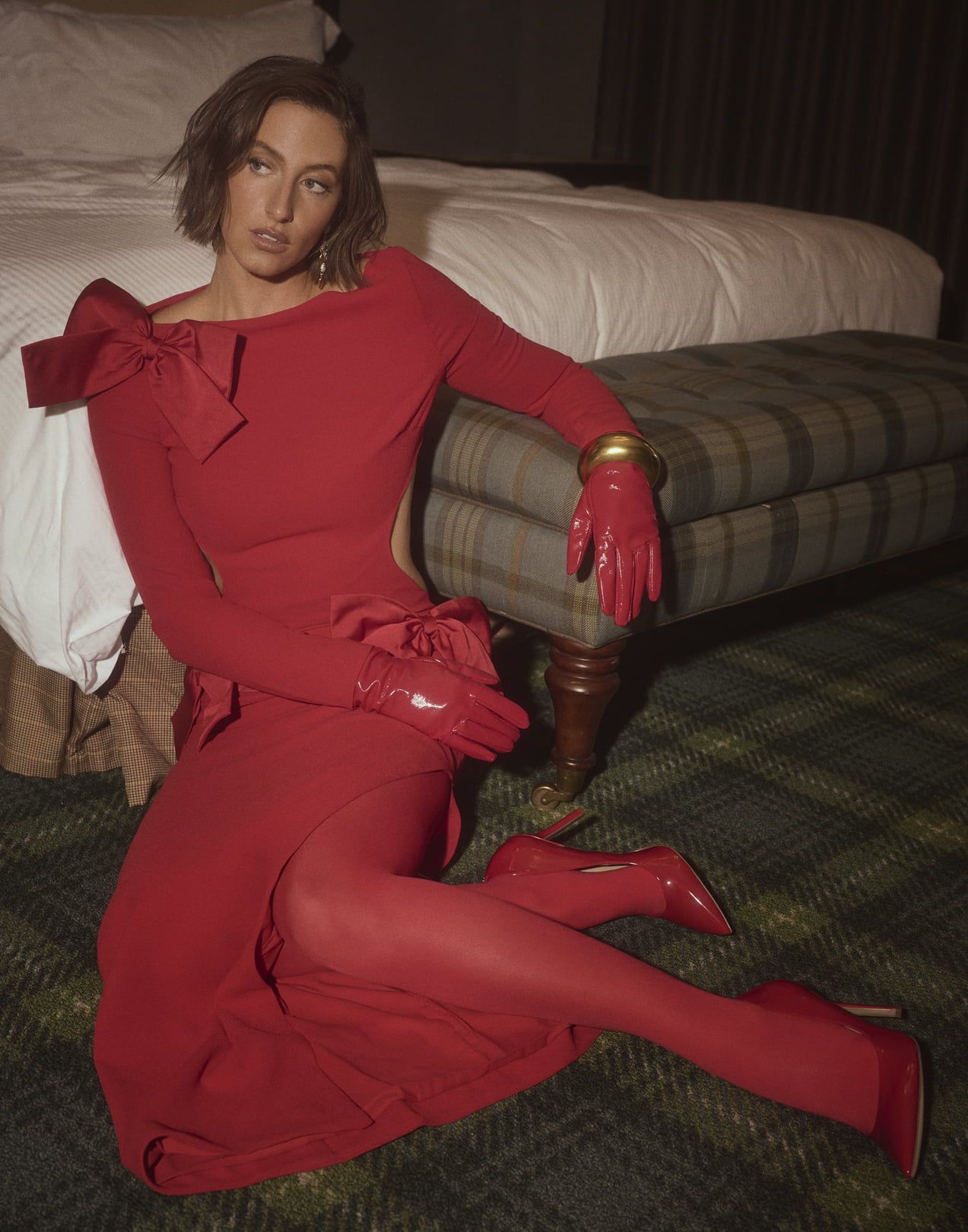
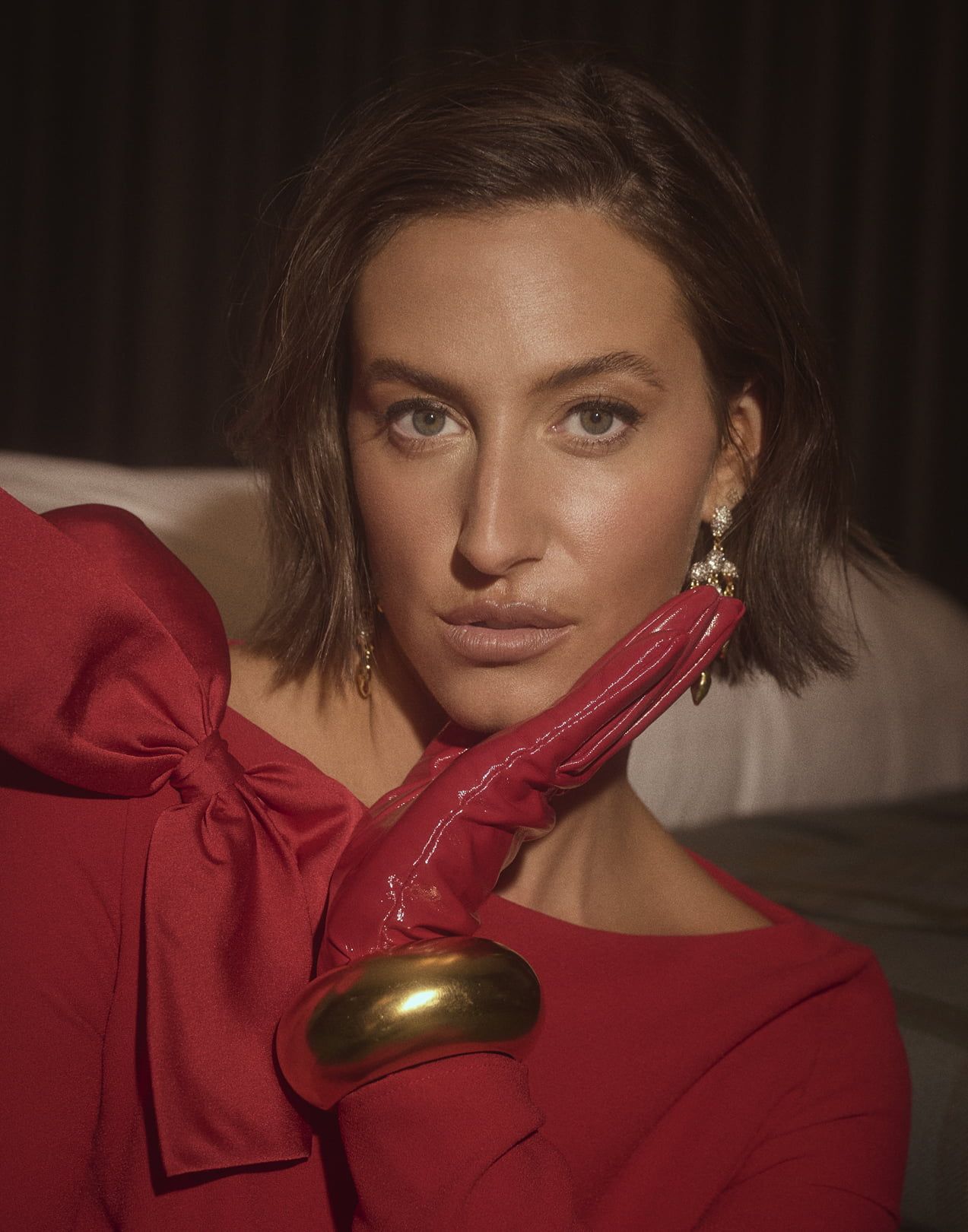
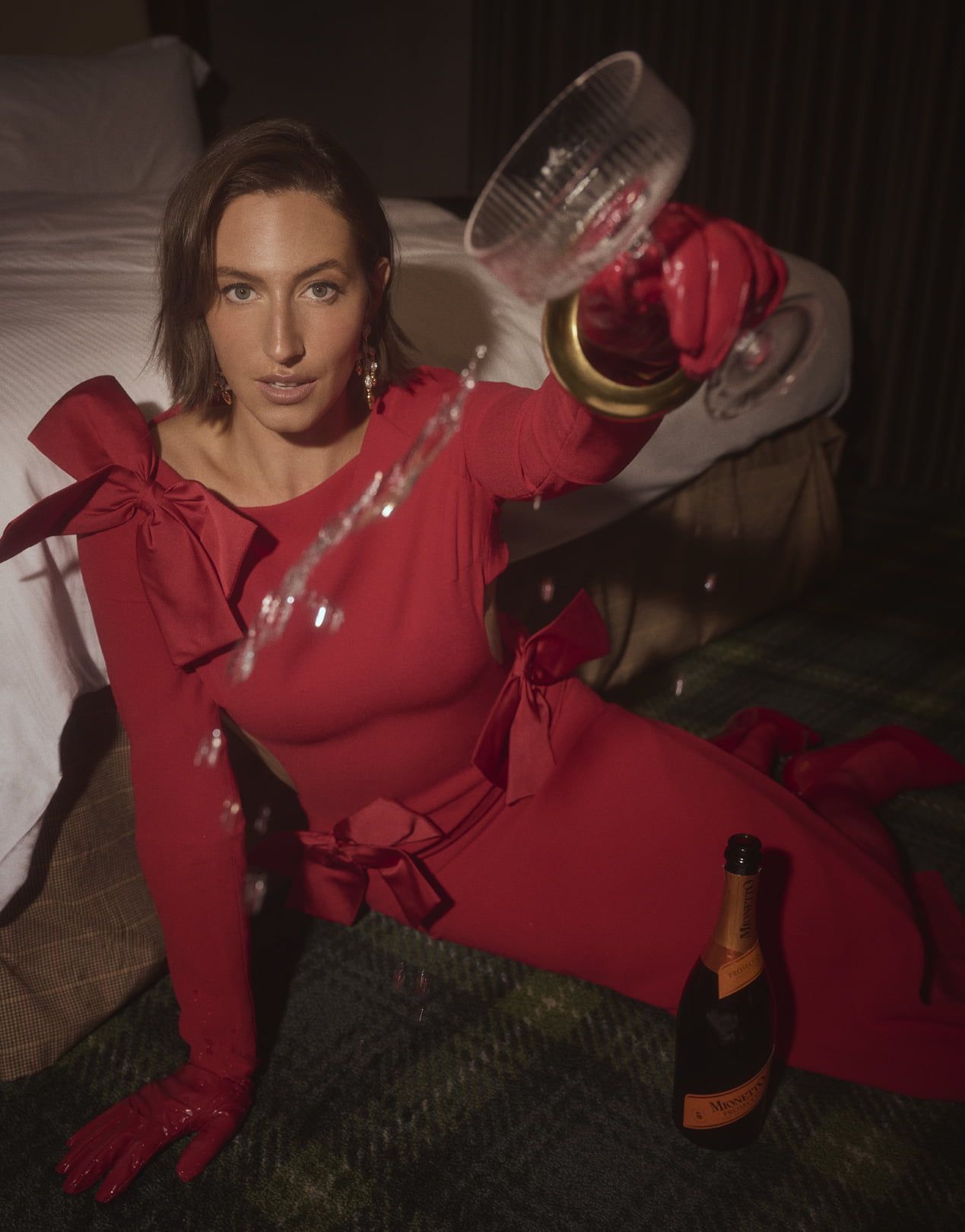
I did want to talk a bit about your grandmother, I’m sure you always get asked how she has inspired you as an artist. I would love to hear about that, but also would love to hear about how she inspired you as a person?
I learned so much from my grandma, so passively without realizing it. Some of it has hit me later in life, too. My grandmother grew up very differently than I did. For one, she is mixed race and presents as Black. She was a Black performer, a female performer, during a time when it was difficult for any person of colour to feel any sense of freedom, especially a woman of colour. She was also an orphan, she grew up on a cotton plantation in South Carolina. She really made something from nothing. She had no parents, guardians, or guidance. Her big lessons that she learned in life she attributed to watching nature.
She watched how beings exist in cycles, everything has its place in the world. She had this beautiful understanding of how she fit in nature, and the way the earth and the planet worked. I would say that’s one of those things that I’ve taken as one of the biggest lessons. Just sort of surrendering to our place in the crazy chaos that is this world, not putting all your energy into things you cannot control. Whatever will be, will be. All we can control is how we react to the world, and how we show up for ourselves and our community every day. That’s something I didn’t realize I learned from her, she taught me just by leading by example.
That’s another thing she taught me, to lead by example. Just be you, and the right people will stay and support you, and you may inspire other people to do the same. We all have something to learn from each other, and I think that’s something she taught me as a musician and a person.
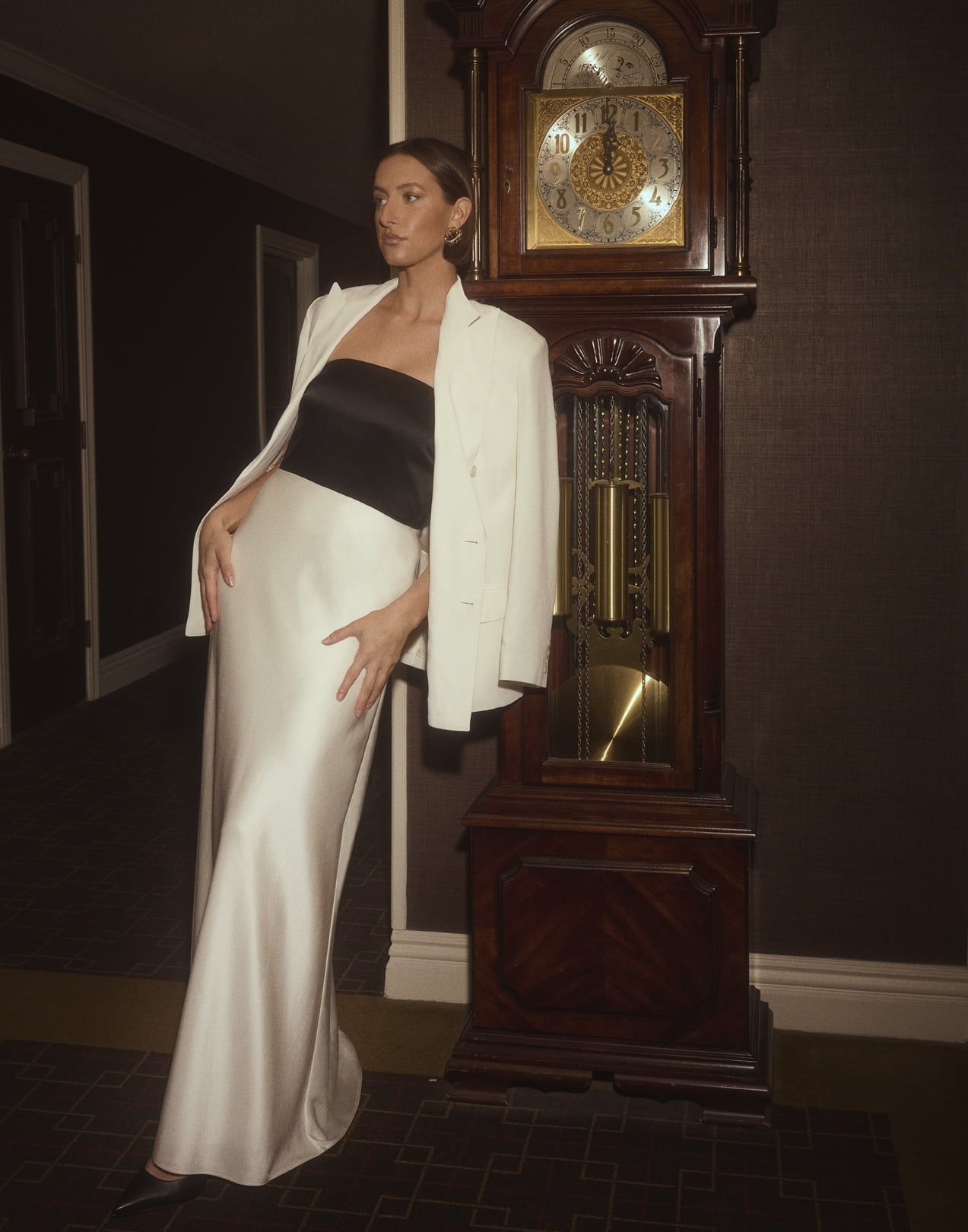
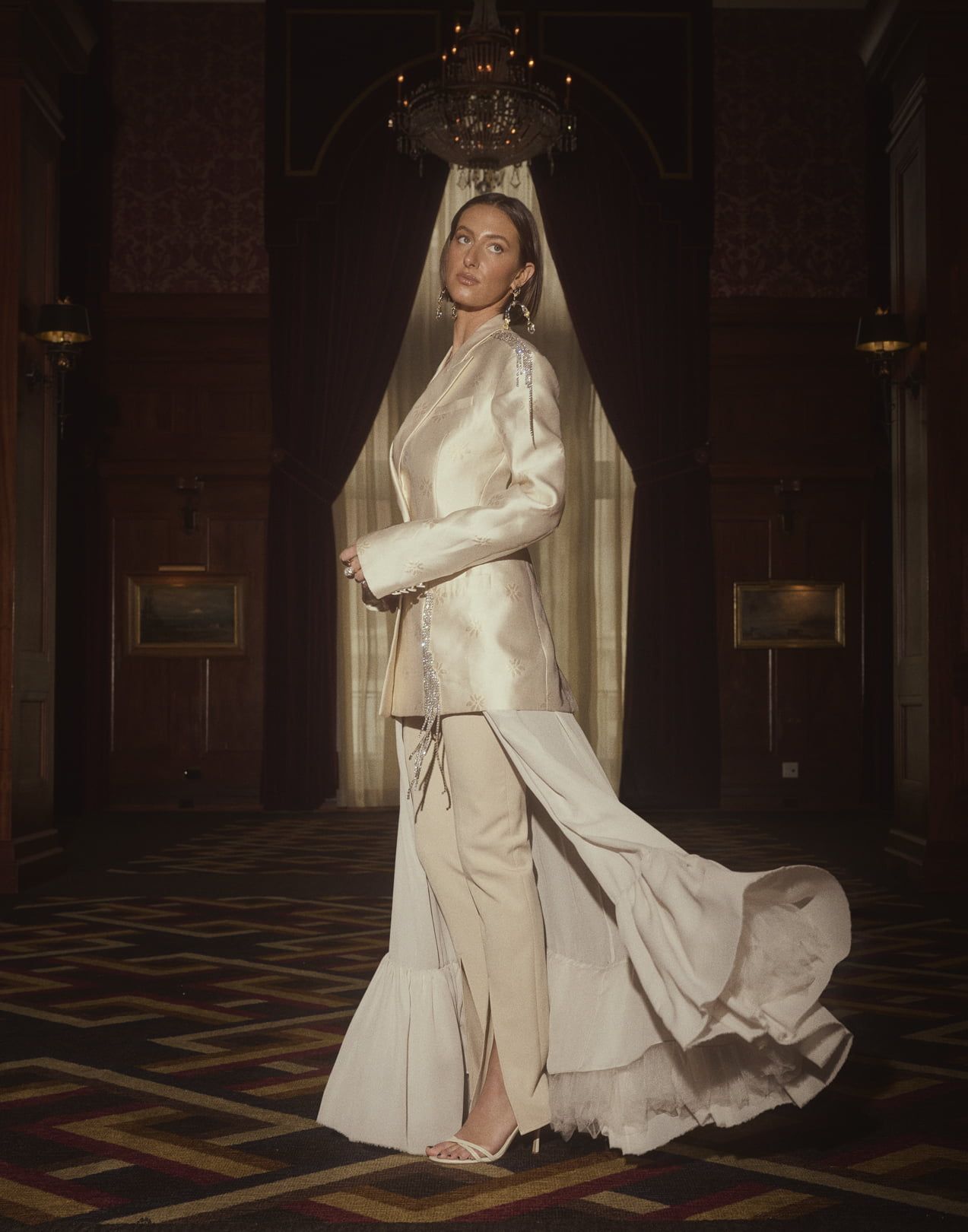
shoes Larroude
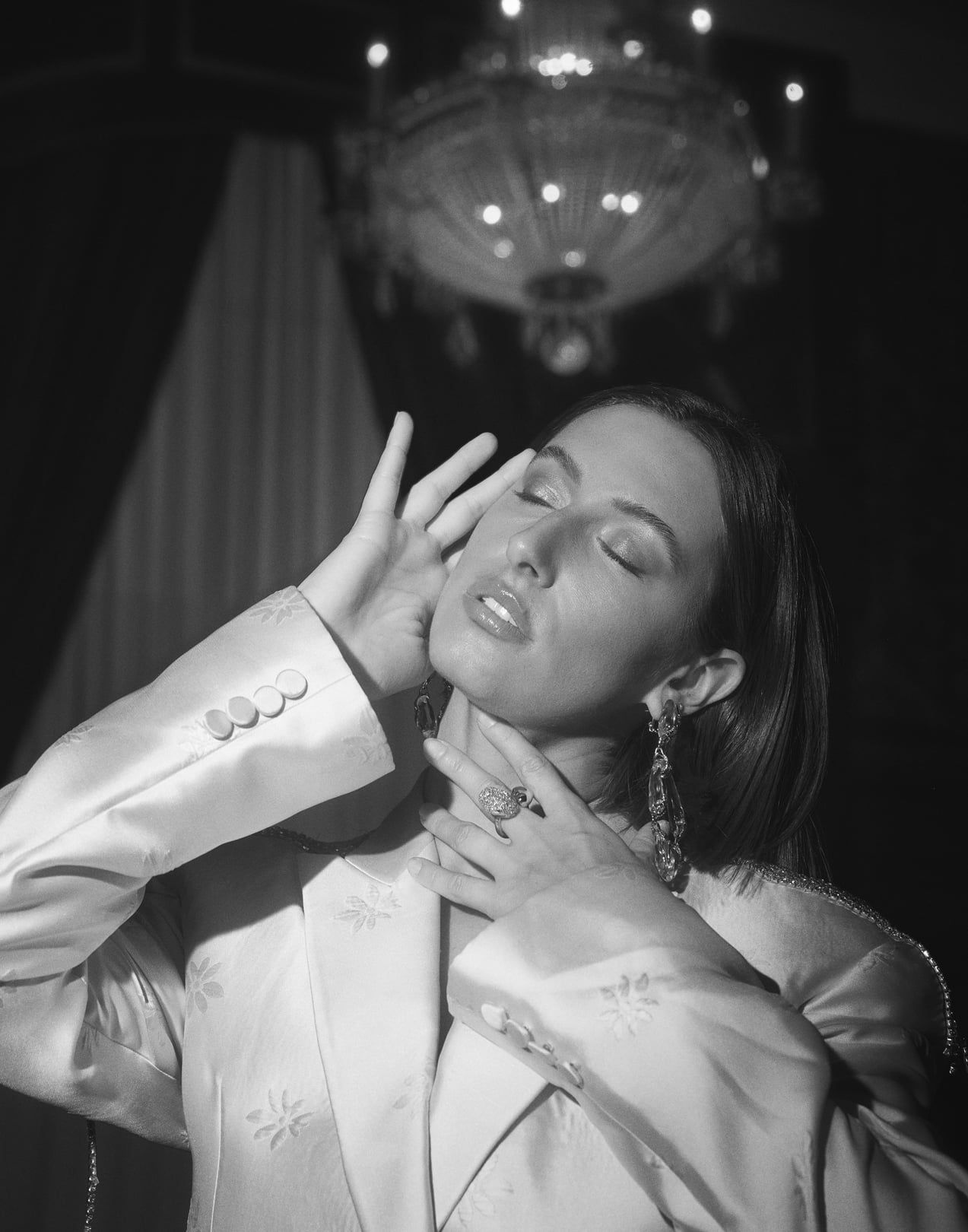
shoes Larroude
Totally, it can be applied to anything. That’s so amazing that she was so grounded in nature, that’s such a special quality to have.
She used to say that her name being “Eartha” was no coincidence! She had such a deep connection to the earth. She used to run on the beach every day when she lived in Los Angeles. She would run barefoot, just being grounded to the earth. She felt the same way about food, very organic and holistic. She was composting before it was cool! It was all about connecting back to the earth. We’re just animals, when it comes down to it. We’re part of this world the same way that everything else is.
Absolutely. As an artist yourself, I imagine it’s important to honour her legacy. You are also forging your own legacy as an individual, can you tell me about the balance between honouring your grandmother while defining your own artistic identity?
Absolutely, great question. In this day and age, a lot of people talk about ‘nepo babies’, and how they have doors open for them because of their family members. I think that, for me, if it didn’t feel authentic, it wouldn’t translate. I am the way that I am because of how artistic and cinematic she was throughout her career, she’s influenced me in that way, but it translates because it’s what I love to do. When I first started pursuing music seriously, I was nervous to talk about her. I didn’t, for a long time, and people would find out later and ask why I didn’t tell them. I wanted to feel that I was confident enough in my artistry, and in my talent, that I deserved a seat at the table with or without her. It’s a part of my story, but it didn’t have to lead it.
I had an old artist project under my first and last name that was very indie pop, sort of what everyone else was doing. It was trendy, and I didn’t know myself that well. Once I connected with myself and the music I wanted to focus on, it kept leading me back to her style and sound naturally. During the pandemic, I was at my dad’s house in Connecticut, alone with my dog. I deleted social media for a few months and was really listening to old records every day. I was connecting with what made me feel at peace. I was listening to Billie Holiday radio, and every tenth song was my grandma. I felt like there was something there, that I needed to be doing more like that. It felt right.
Now that I feel confident that it feels authentic, I think it comes across that way, because it’s just me. I now feel more comfortable having her be part of the story. I feel proud of it, but I also believe in myself enough to know that it’s not because of it. I pay homage because it’s what I love. I grew up watching her perform, so I just love that sound. The cinematic, jazzy blues sound. I wanted to find a way to make that contemporary because I love contemporary pop music. If it didn’t feel genuine, I think I wouldn’t feel as comfortable using her name and talking about her. Because I know that it’s genuine, I’m comfortable having her be part of the story.
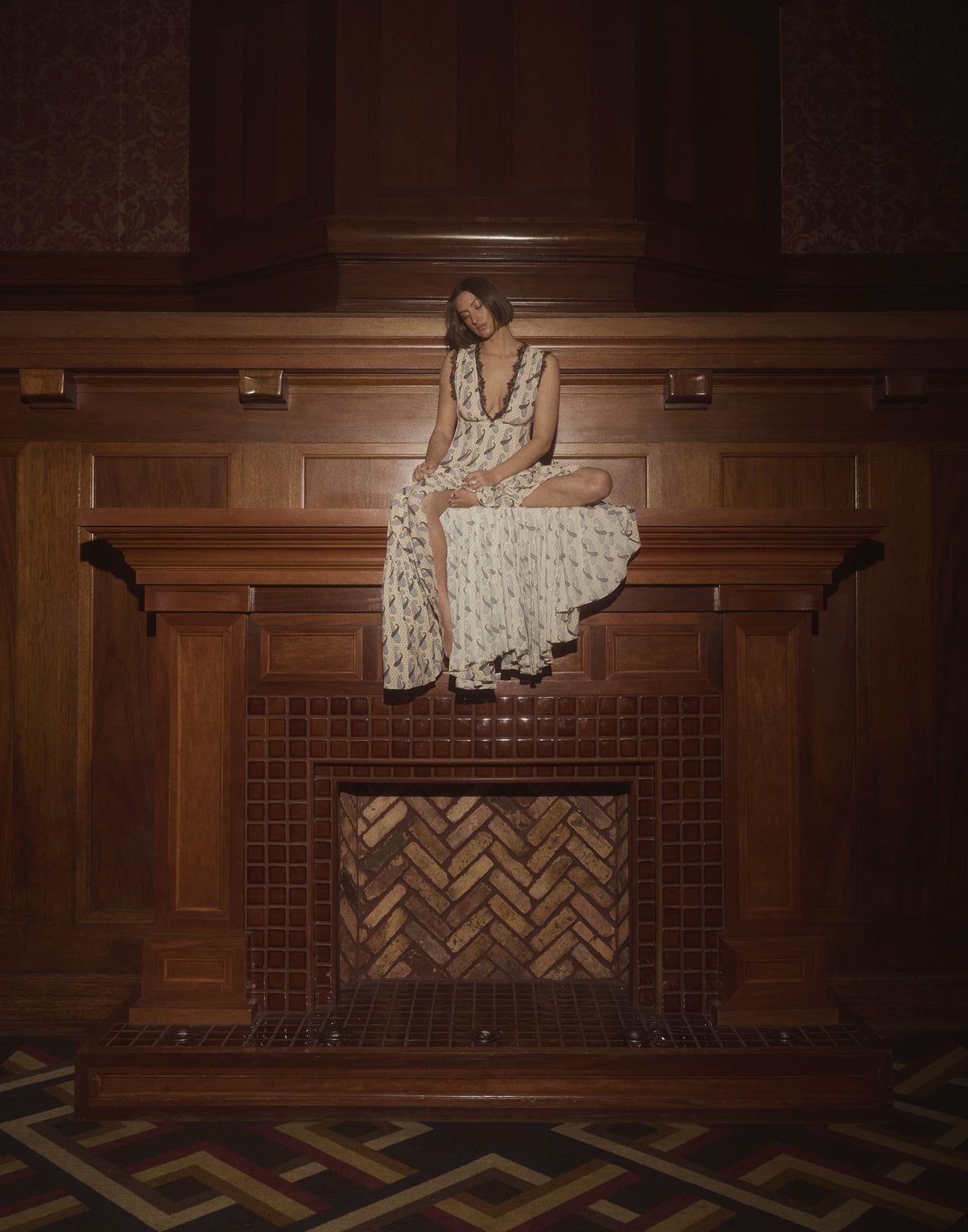
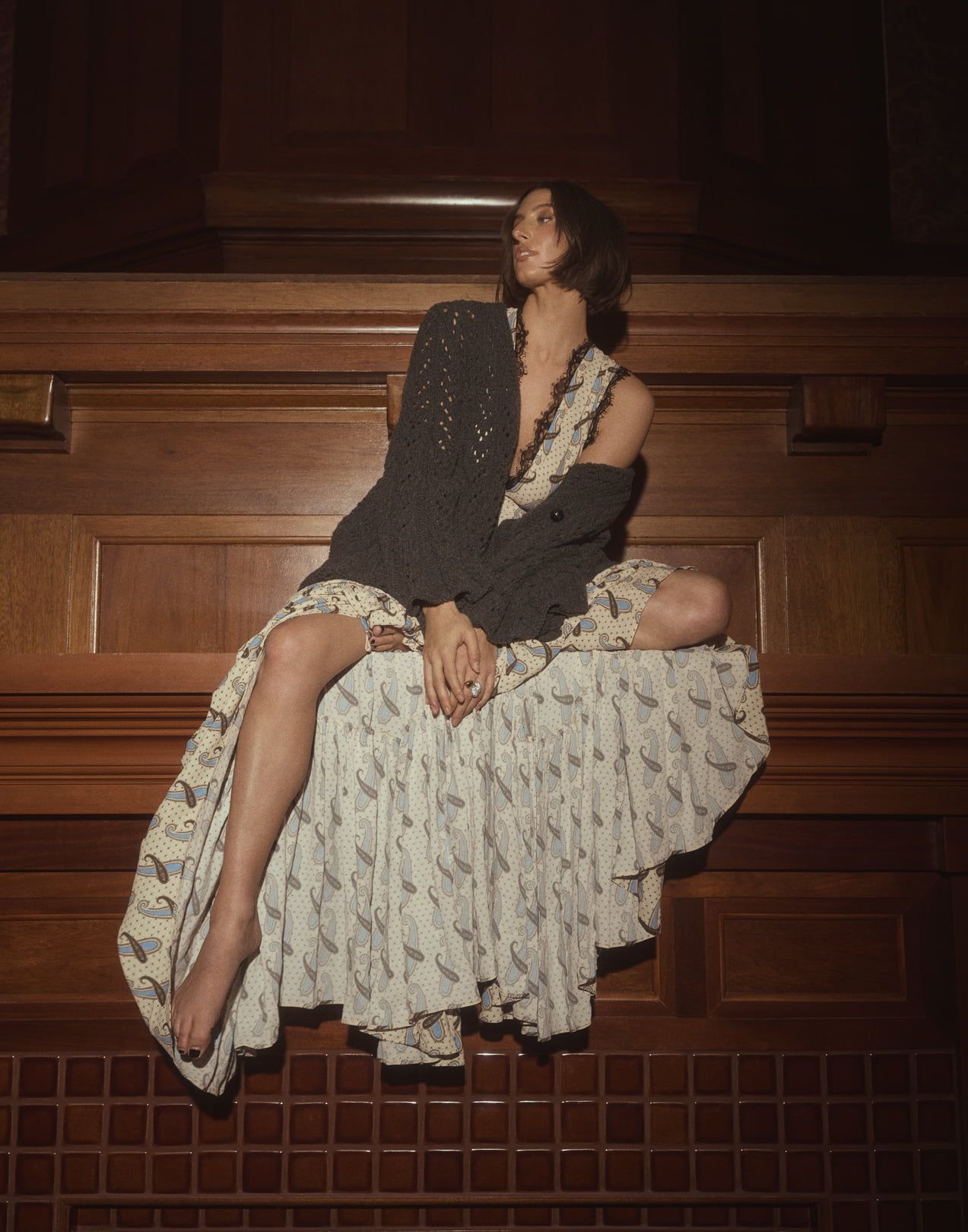
Definitely. It translates into the music as authenticity. I wanted to talk a bit about your sound, because it’s so classic while still having that modern edge to it. What inspires you sonically?
So many things. The beauty of genre is that it’s now kind of irrelevant, everything bleeds into each other. Influence comes from everywhere, and that’s what makes it unique. I really love and admire when artists can do that in a way that feels authentic and natural. It’s cool when you can hear inspiration, but it’s not a copy. I wanted to figure out how to marry the things that I love: the writing and melodies are contemporary pop writing, but the instrumentation and some of the chords are usually vintage-inspired. Even the vocal effects. I love that sound, the grit. It doesn’t need to sound perfect, I like that you can hear the character of a voice. I take those pieces — I love how vintage vocals don’t sit directly in a pocket and can move around — and then I also love the way you can use synths and samples in contemporary music. I do use mostly live instrumentation, but if it sounds real and sounds good, I don’t mind using stuff that’s programmed. I like being able to take modern and tools and resources and making it have that vintage flair.
Some artists inspire me, like Billie Holiday and Nina Simone. I love Tina Turner’s voice. Modern, I love Dua Lipa and Miley Cyrus’ voices. I love the way they choose melodies to aid their voices, I have a lower register. I love James Blake, he’s one of my favourite artists of all time. I don’t make any music that sounds like James Blake, but I love that he doesn’t believe in rules. There are no rules in his sessions. When it comes to the structure, it doesn’t matter if things repeat, if they make sense, if there are different chords for different sections… When I go into sessions now, I say the same: no rules.
I take pieces of inspiration from people who inspire me and then make it my own. Contemporary production, pop writing, vintage effects and chords. I love film and cinema, so I also love making things sound like you’re in a movie. James Bond has always been big for me, the Bond song is what we’re working towards. Having that sultry, seductive vibe with a little bit of blues, jazz, and pop… that’s what inspired the sound.
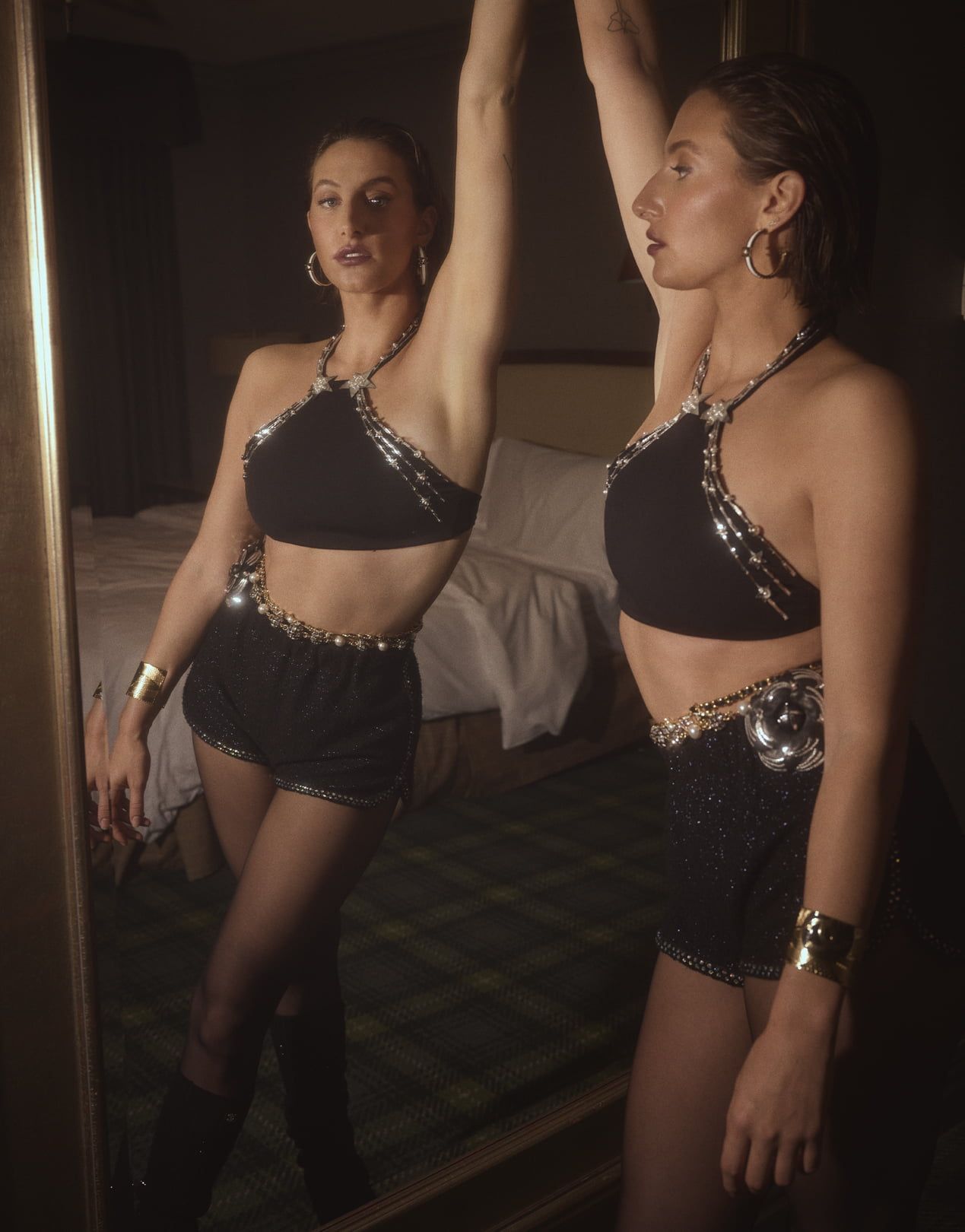
I love that, yeah. Just a unique fusion. Could you tell me a bit about your songwriting process?
Of course! It’s a bit different depending on if I’m writing alone or with others. I’ll get a melody or lyric in my head and then write it in my Notes app. I’ll write things down or voice note things as they come to me. Sometimes I’ll bring that into a session, and build around it. If I already have a melody idea, it’s easy to build chords around that and lay down a piano or guitar. While my producer is doing that, I can start working on vocals or lyrics. Whether it’s me writing alone or with a co-writer, it always kind of starts as a therapy session. I just talk for 5-10 minutes, and they write down notes. We start picking out words or phrases, and a through line to make it into a story. Sometimes it’s a story, sometimes it’s more of a concept. I like to write in order, it makes more sense to me, but I have written songs where I write the chorus first. I find that writing in order makes me feel like I’m experiencing it in the way that I want the listener to experience it, like I’m going through the scene in the movie. I usually have a concept or something I want to say, and often the sentences I say become the lyrics. We just arrange them and use prettier words. I love that process, it’s so much fun.
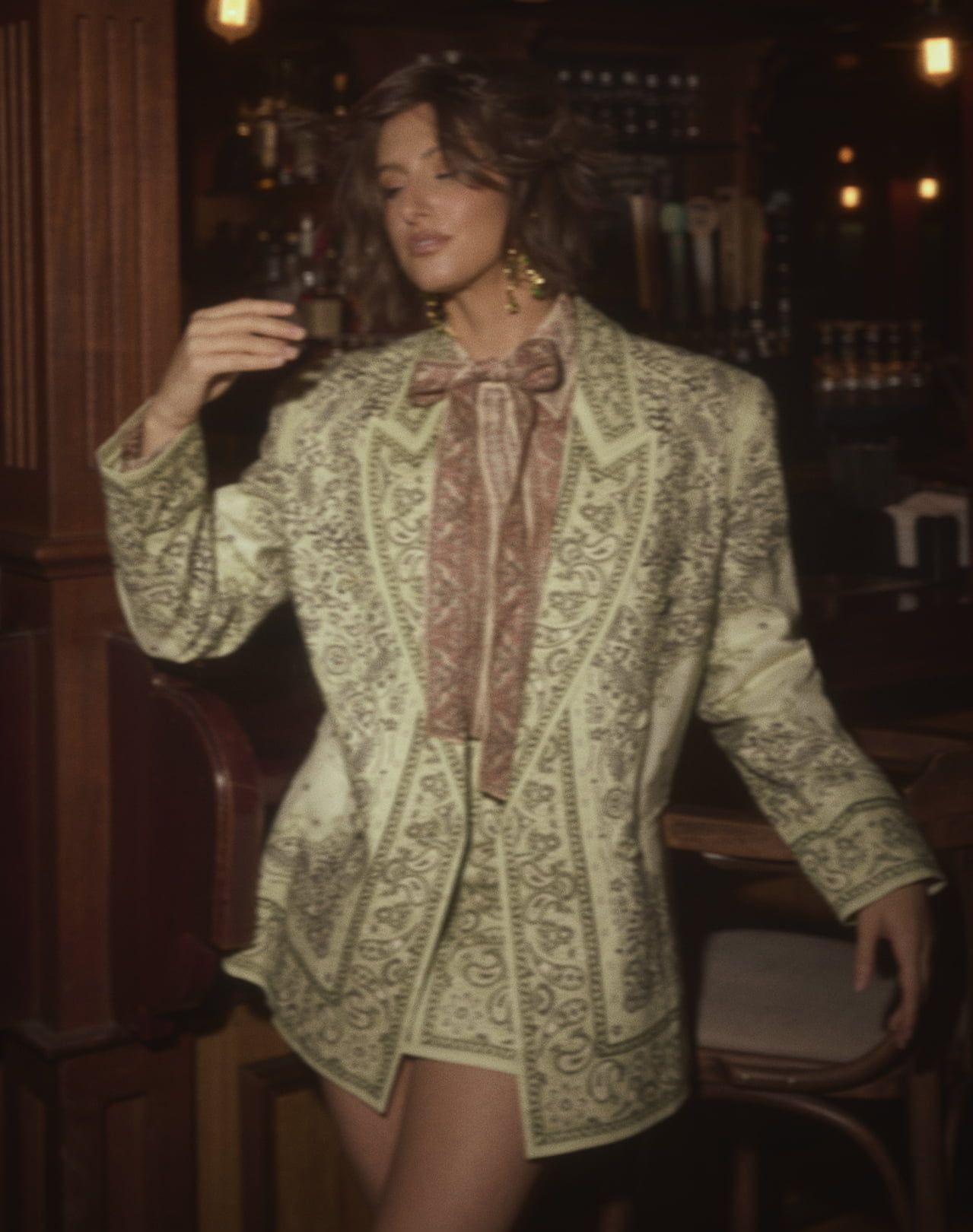
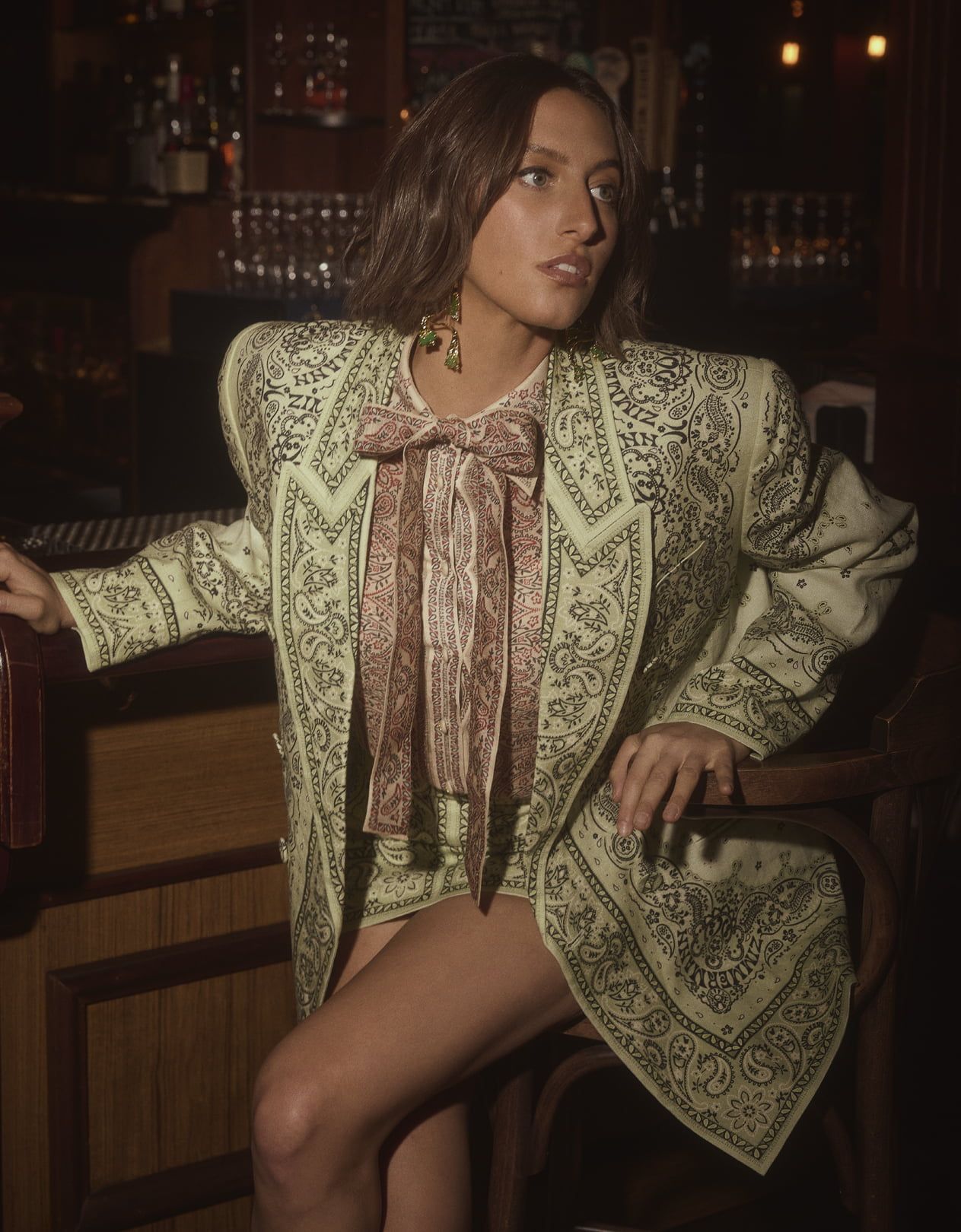
Shifting gears to talk about the EP, I wanted to talk about the title track, Mad Woman. How did you decide on that being the title of the EP as well?
What’s funny about Mad Woman was that it was like, the fourth song we wrote. A lot of the songs were done before it was even a thought. Every once in a while you write a song, and it strikes you differently. It comes from a very visceral place. When we wrote Mad Woman, everything about the story we had written through the other songs started to make sense. The songs were cohesive before, but there was no track through. It wasn’t a smooth beginning, middle, end. When we wrote Mad Woman, I knew it was the beginning. If we are going through the stages of grief after a relationship, or loss, or self reflection journey, it starts with anger and bitterness. After that, all the pieces came together. The story started to flow better.
There were a few songs I was between, when it came to the first single and title track. Mad Woman felt like the strongest thing to set the tone of what to expect on the EP. It also felt like since so much of what I do with my music is creating a film through music, I liked that Mad Woman felt like the name of a Bond film. It set the tone, very intriguing. It sets you on the journey, and you take the journey with me of the past year and a half of my life. I’ve been through that anger and bitterness that leads to self-reflection, and ego confrontation. It leads all the way into Sweet Serenity. I thought it was the right choice, and also very evocative. And just a sick name.
Exactly. One of the stand-out moments on the project is the interlude, Croissance Lente. I love the creative choice to have all the dialogue in French, can you tell me about that?
I’ve always loved an intermission, I think going back to my musical theatre background. Having a moment to breathe, and the storytellers telling you when to take a breath. For me, that moment was when I was in my place of self-reflection, I sat down and wrote this poem in French. I speak French, and my mom comes from French ancestry. She lived in Paris for many years, and I spent a lot of time there. My former partner is French, he’s actually the one on the song with me. The poem is basically the lesson that my grandmother taught me: nature is patience, and everything has divine timing. We all have a purpose here on earth, and I surrender to it.
In my healing from heartbreak, he and I ended up going on parallel healing journeys. We ended up coming back to each other, not in a romantic way, but just with so much love and respect. Now we’ve become creative collaborators, and I thought it would be so beautiful to have both of our voices weaving in and out of each other. This is the entire point of the EP. You can look at people from your past and know that you are on your path, they are on their path. You can have mutual love, respect, and empathy, and nothing but that. I thought it was really powerful to have him on it. He’s an artist as well, he loves the creative process. Having him on it was a healing journey in itself, I thought it was really beautiful.
Coming out after that moment that I had written the poem and felt everything was when we had a chance to talk over everything, and that’s the moment I felt that I could take a breath. I found closure and healing in myself. Having that be the intermission because that’s where I felt my intermission. I thought having it be the interlude was a double entendre, and very intentionally thought through in that way.

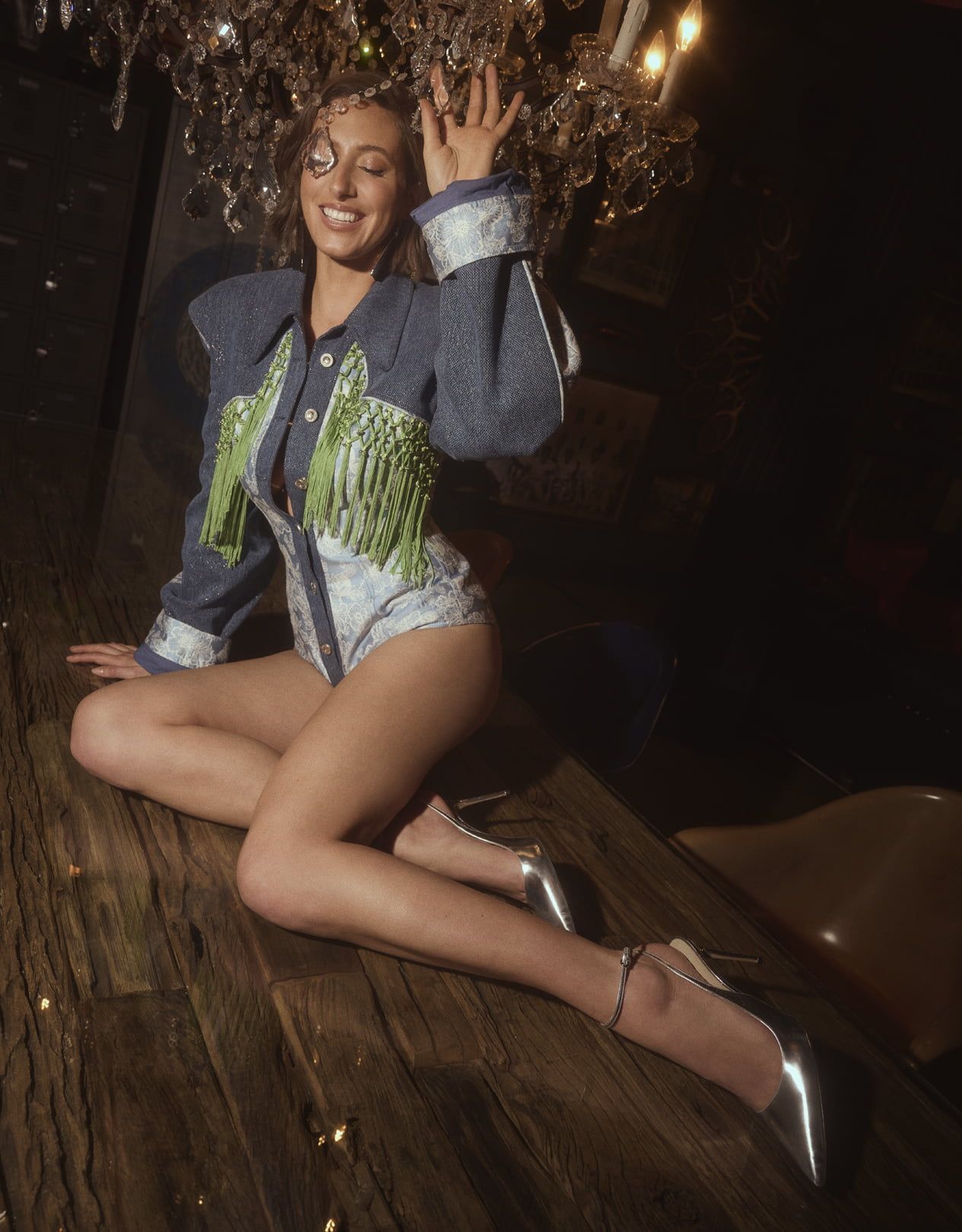
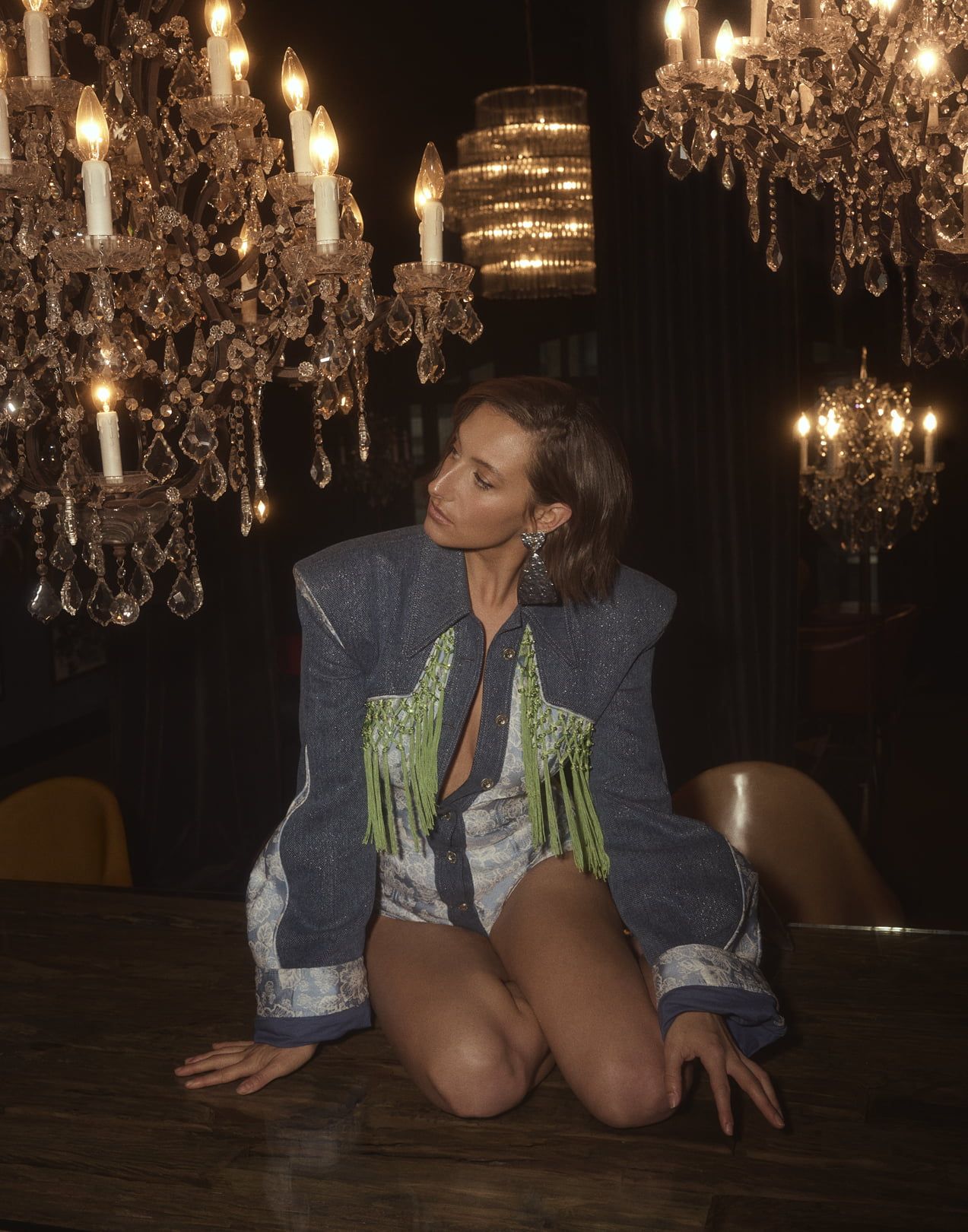
That’s so special to have that healing journey immortalized in art.
I love that you said that, that’s exactly what I said to him after. It felt so special to have him on it, because we could never talk again in our lives, but it was such a moment that was indicative of how we felt. It’s never going to not be powerful, it was so symbolic of the moment.
I wanted to also ask about Sweet Serenity, it’s obviously the ballad of the project, and it’s so vulnerable. Could you tell me about the creative process behind that one?
The serenity prayer is something my grandmother and mom used to say to me all the time. “God, grant me the serenity to accept the things I cannot change, the courage to change the things I can, and the wisdom to know the difference.” It’s always been something I come back to. It’s something I think I’ve come to understand on a deeper level through this healing journey. My favourite line is ‘when people tell you who they are, believe them and have empathy.’ That was my big lesson that I learned for other people, and for myself. I felt that to fully release it, I had to say it out loud. Truly find that sense of sweet serenity. I don’t believe that serenity is always being at peace, I think it comes from a lot of hard work and being vulnerable. It takes a lot of humility to find that. I wanted to write Sweet Serenity as a reminder to myself that I am finding serenity, but I don’t have to attach to one idea of what it looks like. As long as I’m doing my best and trying. That was the end of the story, where it led me. In the “movie” of the EP story, that’s where the screen goes black and the credits roll. That’s how it felt, so that’s why I wanted it to be the last song.
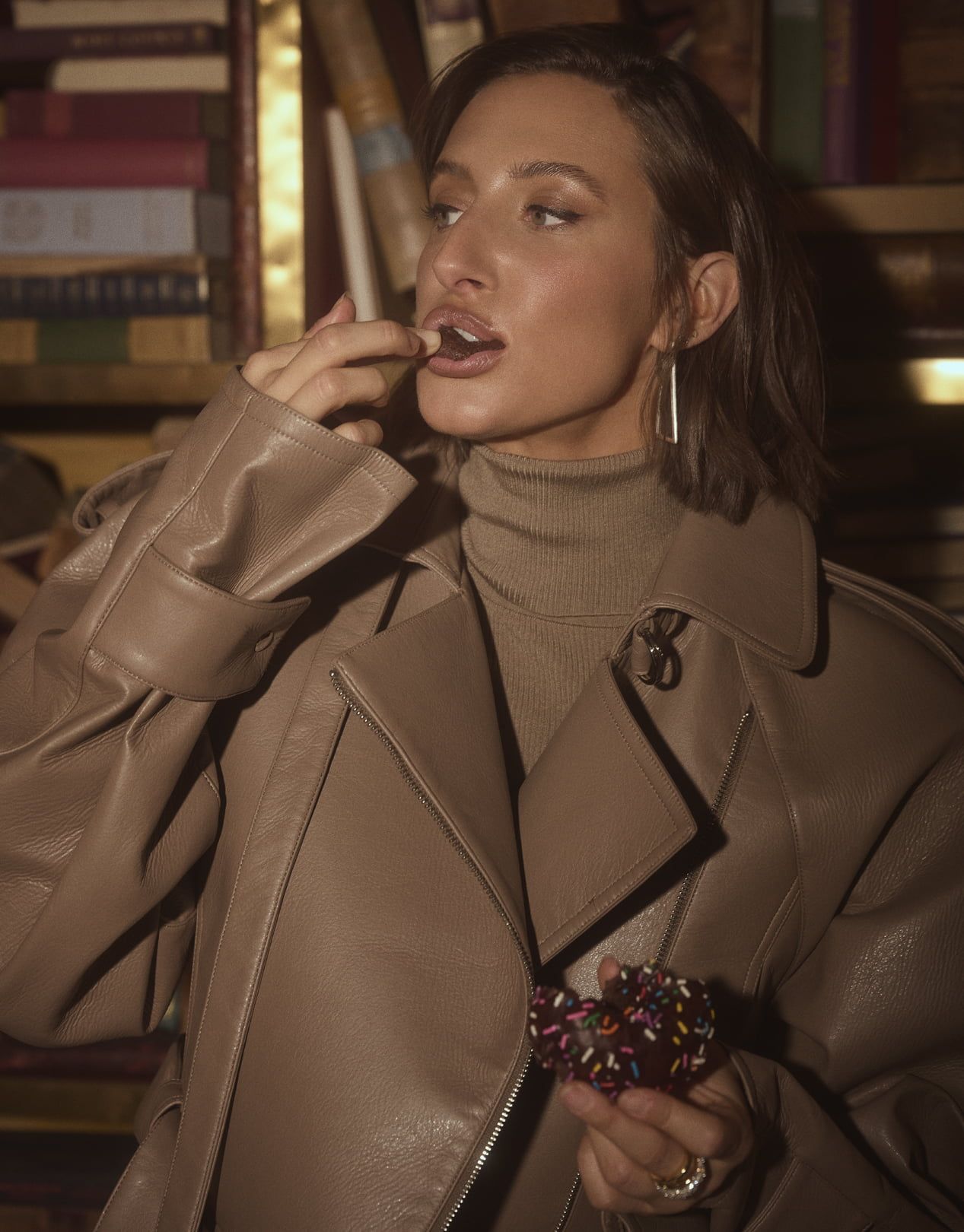
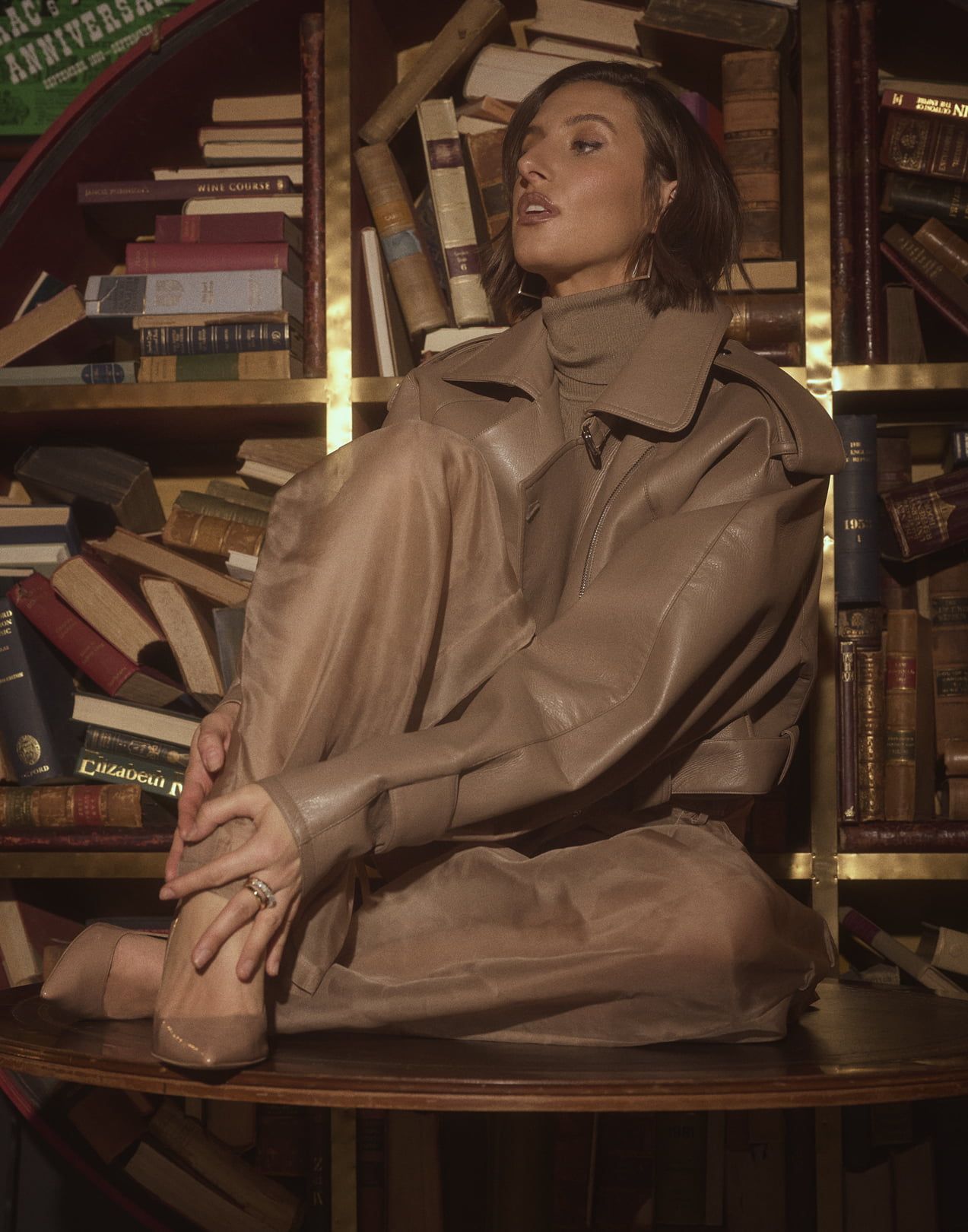
The track progression works really well, I love that it’s a ballad at the end.
The last verse is acapella too, it’s like I’m crawling in their skin for a second. The last word is “surrendering”, that’s the ultimate moment of serenity. Surrendering to whatever it is.
I also wanted to ask you, how do you feel that you’ve grown as a musician since your last release in 2022?
When I was first working on Rendevouz and the four-song EP we wrote around it… it’s been done for two and a half years, but never released it. Not being in control of the release, I think was one of the best things to ever happen to me because it forced me to fend for myself. I had to really look at why I was so attached to it. I was working with a producer, and I think I felt I couldn’t do what I wanted to, musically, without him. It forced me to get comfortable and confident to work with producers, and be able to describe what I want and don’t want. It forced me to have the confidence to go forward and know it was from me and not an external source. I think it was one of those very humbling, very educational lessons about this industry. I had put my eggs in one basket, and it showed me that you can’t do that in this industry. You can only rely on yourself, which means you have to know yourself as an artist really well. That’s my biggest lesson, I finally feel confident in my sound and vision. When I’m in rooms, I’m commanding the energy. I’m driving the bus. Even though it was hard to not release music for so long, I’m so glad it happened when it did, when there was only one song out. It’s easier to pick up and move forward. It was exactly the timing it had to be.
To wrap up, my last question for you today is what do you hope listeners take away from your music?
Great question. I think I used to think about it a lot more because I used to care more about what people thought. Now, I love it and accept that people are going to take what they’re going to take. In general, I love romanticizing life. I want life to feel like an adventure, an exploration. I think I want to give people a platform for them to slip into their own romanticization of life, and feel like they’re in a movie. I want every moment to feel that we’re so lucky to be alive on earth right now with people we love, and that’s what feels cinematic to me. I really want them to feel it, more than I want them to hear it. I want them to feel free, and let the music take them to wherever it naturally takes them. I want them to feel confident in fantasizing and romanticizing.
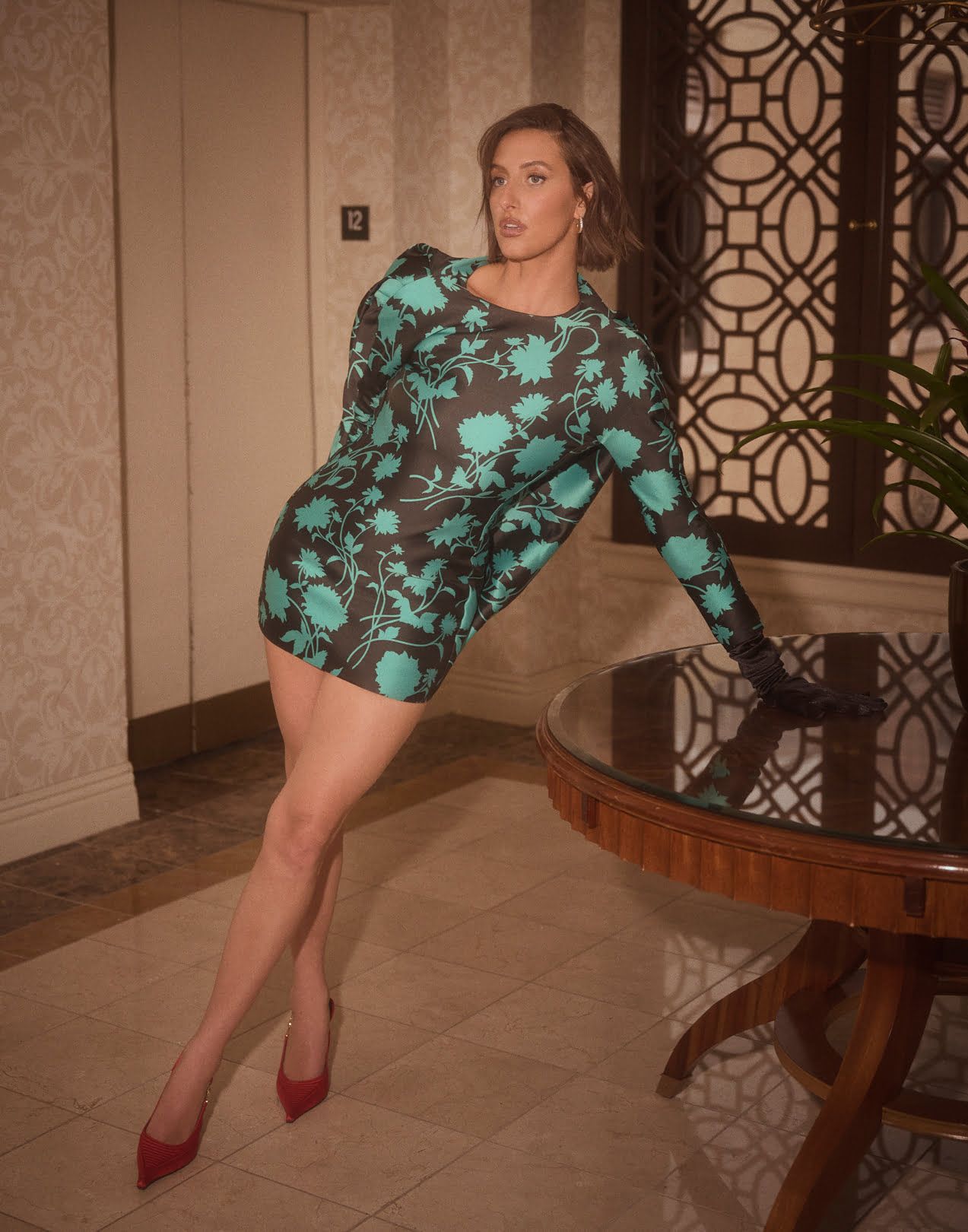
Interview Brigid Young
Photography Kelsey Hale
Styling Ryann Redman
Makeup Morgan Marinoff
Hair Ashley Grossblatt
Photo Assistant Emily Pinto
Location The Los Angeles Athletic Club
Header image: look Stella McCartney shoes Larroude jewelry Hey Maeve

